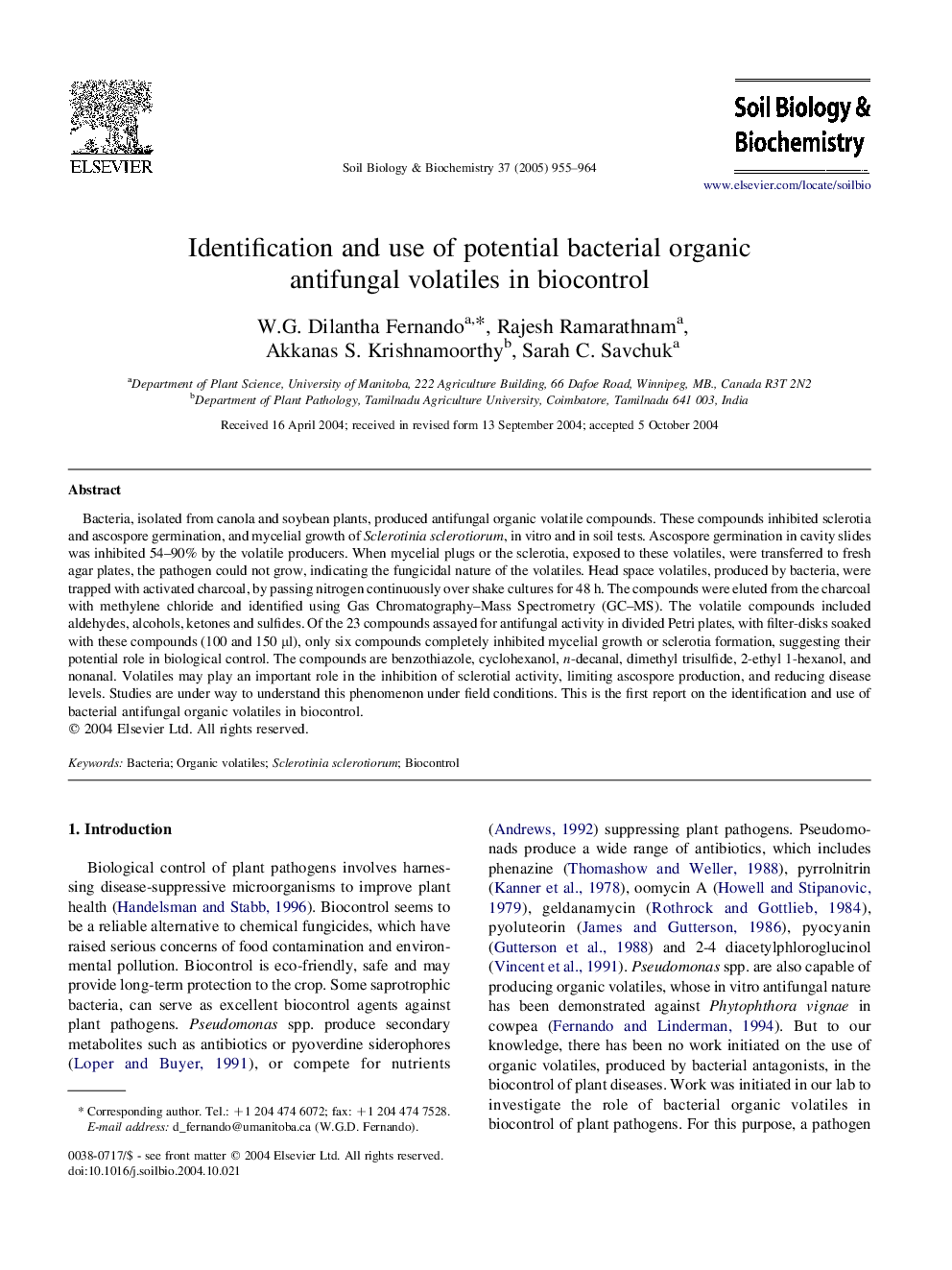| Article ID | Journal | Published Year | Pages | File Type |
|---|---|---|---|---|
| 10847181 | Soil Biology and Biochemistry | 2005 | 10 Pages |
Abstract
Bacteria, isolated from canola and soybean plants, produced antifungal organic volatile compounds. These compounds inhibited sclerotia and ascospore germination, and mycelial growth of Sclerotinia sclerotiorum, in vitro and in soil tests. Ascospore germination in cavity slides was inhibited 54-90% by the volatile producers. When mycelial plugs or the sclerotia, exposed to these volatiles, were transferred to fresh agar plates, the pathogen could not grow, indicating the fungicidal nature of the volatiles. Head space volatiles, produced by bacteria, were trapped with activated charcoal, by passing nitrogen continuously over shake cultures for 48 h. The compounds were eluted from the charcoal with methylene chloride and identified using Gas Chromatography-Mass Spectrometry (GC-MS). The volatile compounds included aldehydes, alcohols, ketones and sulfides. Of the 23 compounds assayed for antifungal activity in divided Petri plates, with filter-disks soaked with these compounds (100 and 150 μl), only six compounds completely inhibited mycelial growth or sclerotia formation, suggesting their potential role in biological control. The compounds are benzothiazole, cyclohexanol, n-decanal, dimethyl trisulfide, 2-ethyl 1-hexanol, and nonanal. Volatiles may play an important role in the inhibition of sclerotial activity, limiting ascospore production, and reducing disease levels. Studies are under way to understand this phenomenon under field conditions. This is the first report on the identification and use of bacterial antifungal organic volatiles in biocontrol.
Related Topics
Life Sciences
Agricultural and Biological Sciences
Soil Science
Authors
W.G. Dilantha Fernando, Rajesh Ramarathnam, Akkanas S. Krishnamoorthy, Sarah C. Savchuk,
